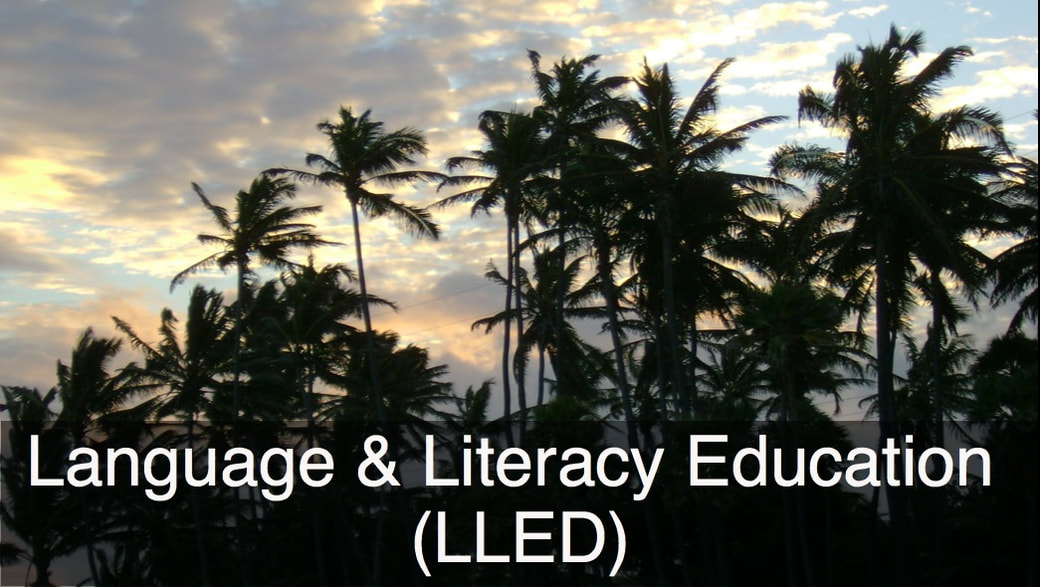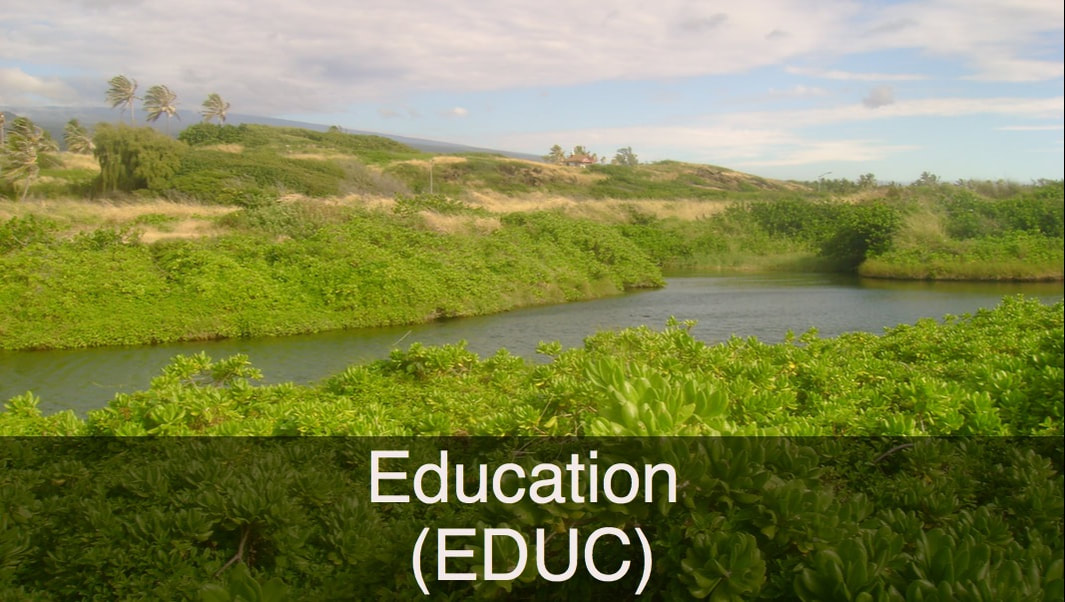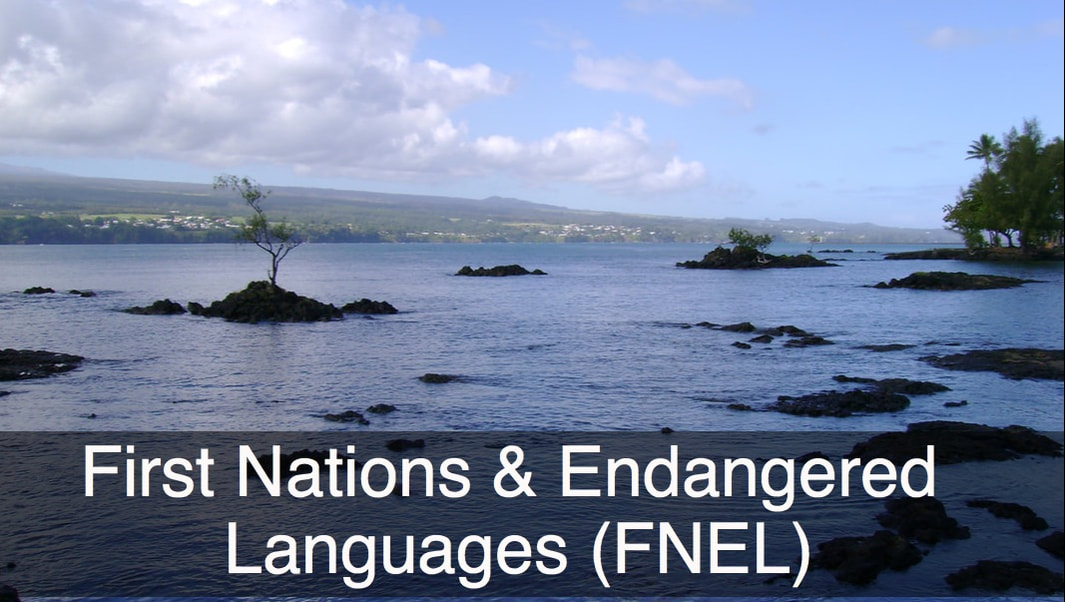Teaching
As a cross-appointed faculty member, I teach courses in the Faculty of Education (FoE) and the Faculty of Arts (FoA), primarily in the department of Language and Literacy Education (LLED), and the First Nations and Endangered Languages (FNEL) program respectively. I also teach courses in the UBC Teacher Education Program and thein the Faculty of Education and the First Nations and Endangered Languages (FNEL) Program in the Faculty of Arts. Additionally, in collaboration with FNEL, we offered a Living Our Indigenous Languages Institute that focused on Indigenous language revitalization and reclamation for language learners and educators.
LLED 489A: Applied Linguistics for Teachers - The course explores basic theories of linguistics and their application to classroom practice. As an introduction to the linguistic foundations of first and second language teaching, the course will assist teachers in making linguistically informed decisions about teaching.
LLED 527: Materials Development for Indigenous Language Learning & Teaching (previously offered as LLED 565: Multimedia Technology & Indigenous Language Revitalization) - Conceptual understanding and practical experience in designing and developing language print materials and interactive multimedia. Overview of production, publication, dissemination, and accessibility of language resources, and pedagogical approaches for language revitalization and education efforts using multimodal resources.
LLED 565 (Special Topics)
LLED 527: Materials Development for Indigenous Language Learning & Teaching (previously offered as LLED 565: Multimedia Technology & Indigenous Language Revitalization) - Conceptual understanding and practical experience in designing and developing language print materials and interactive multimedia. Overview of production, publication, dissemination, and accessibility of language resources, and pedagogical approaches for language revitalization and education efforts using multimodal resources.
- Student Podcasts - Winter 2, 2012
LLED 565 (Special Topics)
- Indigenous Language and Culture Education: Global Perspectives - This seminar will provide an opportunity for students from multiple sites to engage in the comparative study of issues associated with education of Indigenous peoples and communities on an international scale with an emphasis on the role of language and culture. Students will participate in a hybrid course with students and faculty in Alaska, Arizona, Hawaiʻi, Montana, British Columbia, and New Zealand via polycom (an audio-video conferencing system) on a weekly basis.
- Indigenous Languages of North America - This course surveys Indigenous languages of North America and the communities that speak them, focusing on a representative sample for closer study. The role of language in maintaining cultural identity is examined and prospects for the future of Indigenous languages are assessed.
- Living Our Indigenous Languages Through Performative Arts - This course demonstrates how song and dance are used to perpetuate, reclaim and revitalize Indigenous language and culture.
- Local and Global Indigeneity: Solidarity, Struggle and Possabilities in Language and Literacy Education - This course broadly examines the ways Indigenous communities have sustained and reenergized their language, literacy, and literary practices in a time where local efforts are effected by global pressures.
EDUC 440: Aboriginal Education in Canada - The course is intended to provide teacher candidates with knowledge and a deeper understanding of Indigenous people’s worldviews, approaches to learning, and their histories and contemporary realities. Teacher candidates will explore how Indigenous histories, perspectives, content, worldviews and pedagogies can be respectfully and meaningfully integrated in the curriculum, teaching, and programming of classrooms, schools, and community contexts. Further, this course is also intended to provide teacher candidates with opportunities to prepare themselves not only for the classroom, but to develop respectful relationships between Aboriginal families, schools, and communities where educators live and work. Our overall goal is to assist those becoming professional educators to make a contribution to transforming Aboriginal/Indigenous education in order to improve educational outcomes for Indigenous learners and enhance the learning opportunities for all students.
For more information, visit the UBC Teacher Education Office (TEO) webpage on Teaching for Indigenous Education.
For more information, visit the UBC Teacher Education Office (TEO) webpage on Teaching for Indigenous Education.
FNEL 180: Introduction to Endangered Language Documentation and Revitalization - Foundational concepts in the critical study of cultural, historical, social, and political factors that impact language loss, retention, and revival. Introducing strategies and practical methodologies for collaborative, interdisciplinary, community-based documentation and revitalization projects for First Nations and Indigenous languages.
FNEL 380: Technologies for Endangered Language Documentation and Revitalization - Digital tools for endangered language documentation, conservation, and revitalization. Overview of best practices, introduction to community engagement and capacity-building, protocols and ethics, project design, cultural context, orthographies, use of audio, video and still photography, data management, archiving and web publishing.
FNEL 480: Endangered Language Documentation and Revitalization - Critical study of the historical, social, cultural, political, and economic factors impacting on language loss, retention, and revival. Research on and application of methodologies for collaborative, trans-disciplinary, community-based documentation and revitalization of BC's Indigenous linguistic heritage.
For more information, visit the UBC First Nations & Endangered Languages website.
FNEL 380: Technologies for Endangered Language Documentation and Revitalization - Digital tools for endangered language documentation, conservation, and revitalization. Overview of best practices, introduction to community engagement and capacity-building, protocols and ethics, project design, cultural context, orthographies, use of audio, video and still photography, data management, archiving and web publishing.
FNEL 480: Endangered Language Documentation and Revitalization - Critical study of the historical, social, cultural, political, and economic factors impacting on language loss, retention, and revival. Research on and application of methodologies for collaborative, trans-disciplinary, community-based documentation and revitalization of BC's Indigenous linguistic heritage.
For more information, visit the UBC First Nations & Endangered Languages website.



